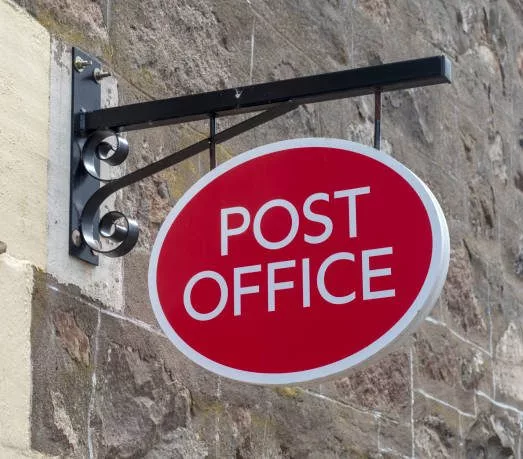Category: News
The Financial Times has written another article on the Therium-funded case brought against the Post Office.
Subscribe to our mailing
You may unsubscribe at any time. View our privacy policy
The Financial Times has written an article about the Therium-funded Post Office case.
Third-party funders helped unlock decades of injustice suffered by 550 sub-postmasters.
Warriors for social justice or profiteering ambulance chasers? The world of private litigation funding will rarely get a better case in their favour than the Post Office one.
The verdict last week quashed the criminal convictions of 39 sub-postmasters. It was the culmination of years of legal wrangling and decades of injustice in which the state-owned Post Office criminalised hundreds of its own staff, ruining lives and livelihoods and causing untold heartache to those accused of false accounting because of flaws in the IT system.
The former Post Office chief executive Paula Vennells this week stepped down from the boards of Wm Morrison and Dunelm, and from her duties as a Church of England minister. She had also sat on a group advising the Church on ethical investing.
Under her leadership from 2012 to 2019 the Post Office took an aggressive legal strategy against a civil case brought by 550 sub-postmasters, dragging out litigation and driving up costs, even as evidence mounted that the Horizon system was at fault. It was the outcome of the civil case that unlocked last week’s result.
On the other side of the scorched earth legal strategy was a team backed by a litigation fund, a type of case financing historically associated with the hedge fund world and sometimes derided as ethically questionable or even a threat to the legal system.
The two are connected. High court battles are astronomically expensive. Defendants try to drive a wedge between claimants and third-party funders by running up costs and delaying tactics, in the hope the latter might walk. Funders, such as Therium in the Post Office case, face total loss if a case goes against them and can be called upon for more money as costs ratchet up (even as expected claims fall).
That is one reason this type of funding doesn’t come cheap. Funders receive their investment back, plus a multiple of their costs or a share of the eventual award. Given that the “loser pays” UK model rarely covers all legal costs, this also diminishes the pot left for the claimants.
In the Post Office civil case, the sub-postmasters were left with £12m to share from a £58m settlement. Further civil cases are likely to follow.
Subscribe to our mailing
You may unsubscribe at any time. View our privacy policy

Our UK, US and European teams have been top ranked in Leaders League 2021.
Subscribe to our mailing
You may unsubscribe at any time. View our privacy policy
In The Law Society Gazette, Neil Purslow talks about his career and the genesis of Therium Access.
Subscribe to our mailing
You may unsubscribe at any time. View our privacy policy
More corporate clients than ever have pursued third-party litigation funding in England this year, as the COVID-19 pandemic has forced businesses to think more conservatively and try to prioritize the cash on their balance sheets.
Lawyers expect the rise in litigation directly linked to the pandemic involving claims for business interruption insurance or insolvencies to continue. (iStock) Lawyers predict that, after England entered its second national lockdown on Thursday in an attempt to control a second wave of coronavirus cases, the increase in demand for legal finance is likely to continue.
“COVID will be a really important event for litigation funding,” Robert Coffey, managing partner at Cooke Young & Keidan LLP, said. “A lot of people who previously didn’t engage in funding will do so now.”
Lawyers scrambled as the first national lockdown took hold in March to provide their clients with guidance. They expected a rise in new litigation directly linked to the pandemic involving breach of contract, claims for business interruption insurance or insolvencies. Lawsuits connected to COVID-19 have started reaching the courts, with disputes over business interruption insurance leading the way.
Corporate lawyers are also closely watching the progress of two big cases over stalled acquisition deals, one involving Apollo Capital Management and the other brought by financial technology company WEX over a $1.7 billion deal to buy travel payment providers. Several companies, including Pizza Express, Virgin Atlantic and ED&F Man, have had to restructure.
Meanwhile, existing cases and legal battles unrelated to coronavirus continue to make their way through the courts, prompting a wider range of companies to look for financial help.
Robert Hanna, co-founder of Augusta Ventures, a litigation funder, emphasized that the market has matured after more than a decade in the U.K., as law firms and businesses now approach litigation funders at a much earlier stage. “Litigation finance has always been a risk management tool for claimants, allowing them to take as much or as little risk as they want off the table,” Hanna said. “But, recently, CFOs are realizing that it is also a source of much-needed liquidity, since a funder will pay for their litigation costs. This allows the firm to hang on to their precious cash.”
Litigation funding tends to be popular when companies are facing financial pressures: swathes of the economy are struggling as the lockdowns roil the economy. Many funders saw indications of corporate distress from the start of the pandemic, when markets plunged.
“Companies with big budgets, lots of cash and armies of lawyers that wouldn’t have in the past come into the funding market on an individual case basis have started expressing a keener interest in monetization deals or funding deals on a portfolio basis,” Neil Purslow of Therium said.
Purslow said that the increase in inquiries from these kinds of companies shows there were types of businesses and parts of the world where budgets are being drastically reappraised and where spending money on litigation lawyers was becoming less of a priority.
New partnerships
More funders have entered the U.K. market in the past decade, offering greater opportunities for potential claimants, according to Ben Lasserson, partner at FisherBroyles LLP. “Law firms are looking for more creative approaches on how they can bring in financial support for the work they do,” Lasserson said. “And what we are seeing is essentially far more flexibility around what the funders are actually happy to entertain and to do.”
Funders can also help assess the prospects of litigation, providing a second, credible viewpoint on a case for clients about their prospective claim, according to CYK’s Coffey.
There have been several tie-ups between law firms and funders in the era of COVID-19. But funders say they are working in the way they always have — financing cases only when they have done considerable due diligence, including on the law firms themselves, to make sure they are backing claims with merit and strong counsel.
“The desire to learn about funding has increased, and we’re seeing more engagement than ever before,” said Susan Dunn, founder of Harbour Litigation Funding. “Law firms are realizing that their clients might need this, in a way that they might not have had to think about but for COVID.” Dunn’s company funded the high-profile claim for business interruption insurance brought by Mishcon de Reya against Hiscox on behalf of policyholders. The policyholders were joined to the Financial Conduct Authority‘s test case against eight insurers, which was fast-tracked through the courts and is now on its way to the Supreme Court. “A lot of these businesses depend on their insurers releasing that £100,000 to help them survive. It was a very important case to get going quickly,” she said.
The business interruption cases are one of the few disputes linked to the coronavirus dispute that have actually got off the ground and landed in the courts, Dunn said. But the rise in general inquiries has kept her firm busier than ever. Harbour Litigation is using capital from the fifth fund it raised during lockdown on many new potential cases. “Just because there are good claims on liability, it doesn’t mean that they’re necessarily good claims for funding. The value of a case and the ability of the defendant to pay are the first two questions we have to have answered positively,” Dunn said. “Just because one business interruption insurance case looks positive doesn’t mean they all work.”
A major shift in practices from before the pandemic, which is expected to grow further, is portfolio funding. The arrangement allows multiple cases from one company to be funded under one agreement. Funders like it because their investment and any subsequent returns are spread across a portfolio of claims, while law firms can get claims funded more quickly.
“If you have companies with multiple claims that are strong enough, we’re happy to finance them as a portfolio, and, as the risk is lower for us, we are able to offer a more efficient funding rate,” Hanna, of Augusta Ventures, said.
The portfolio model can also allow funders to offer companies better pricing because funding companies can diversify their risk through multiple claims, according to Elizabeth Fisher, senior vice-president of Burford Capital.
Long time to go
Therium’s Purslow said there was a lot of talk during the “initial excitement” of the lockdown about insolvency cases coming through, as well as general commercial cases with breach of contract and arguments about force majeure and material adverse change. “But we haven’t seen it at the level predicted yet,” Purslow added.
Christina Bost Seaton, partner at FisherBroyles, is watching for signs of a financing model that will make big commercial disputes linked to COVID-19 viable for outside financing. She said that tort claims are easier to put into portfolios, because there is a big pot of money at the end. But so few commercial disputes end up going to trial that it’s difficult to price them out.
“In theory, you could have funders that think it’s worth going after force majeure claims. But it’s very expensive to be at the forefront of leading that kind of case, and, as much as lawyers like to talk about that type of possible dispute, very few cases are being filed so far, and even fewer are going to decision,” she said.
Those cases are likely to be drawn out, with no quick settlements, as every case tied to the pandemic will have broad implications across the industry. Many funders are also working on the assumption that the courts will function more slowly than usual.
“Any form of economic disruption or downturn usually tends to generate litigation,” Burford’s Fisher said. “But, while COVID-19 is obviously a disruption and we’ve seen an uptick in inquiries, I think it will take some time to play out.”
And England’s six-year limitation period for civil claims allows companies plenty of time to bring claims related to the health crisis. Major downturns tend to create a long wake of litigation: cases are still making their way through the courts that date from the 2008 financial crisis. Meanwhile, much of the economy is still being propped up by government initiatives. A new iteration of the furlough scheme, for example, was announced in response to a second wave of coronavirus. Other measures, such as the so-called bounce-back business loan scheme and eased taxes for small companies, remain in place.
Most funders predict that 2021 will be a busy year for claimants, particularly if those government programs wind down. “The difference between now and the last recession is that insolvency practitioners are more sophisticated users of legal finance. They understand how legal finance can enhance returns to creditors,” Fisher said.
Subscribe to our mailing
You may unsubscribe at any time. View our privacy policy
Article in the Financial Times about the launch of Therium Access in the UK.
Subscribe to our mailing
You may unsubscribe at any time. View our privacy policy
Liverpool-based boutique Provenio, formed by a group of former DLA Piper lawyers, has entered into a £50m funding partnership with Therium Capital Management.
Provenio, which is led by managing partner Mark Goodwin alongside two former colleagues from DLA, is looking to use the fund for high-value business litigation and arbitration claims.
Goodwin told The Lawyerhe is hoping to see the firm’s first funded claim with Therium set to go live in just a few weeks, with the pot’s lifespan set to last around three to five years.
“The category of cases that we are looking at are transactions gone wrong,” said Goodwin, who believes this arrangement will take his firm to the next level. “We can offer clients a fully contingent fee arrangement backed by funding that takes the cash flow burden and financial risk out of the case but maintains a significant return for the client on a successful outcome.”
The new litigation landscape being carved out by Covid-19 provides Provenio with the ideal platform to minimise the financial burden on clients, who are seeking to reduce legal spend while also recovering damages through the courts.
Therium’s chief investment officer Neil Purslow says this latest deal with Provenio is “very much of its time”. “Covid-19 is a natural hunting ground for a firm of this nature,” says Purslow. “We have enjoyed a successful relationship with the Provenio team for many years and, since its launch last year, Provenio has distinguished itself in the competitive litigation market.”
Discussions between Therium and Provenio kicked off not long after the boutique’s launch in 2019 when Goodwin was joined by former DLA colleagues Catherine Radcliffe, who was a legal director at the firm, and Hannah Catterall, who was a senior associate. It now boasts a total headcount of seven but Goodwin claims the firm is looking to grow over the next 12 to 18 months. It changed its name from Fortuna Law earlier this year.
Just last month, DLA made its own foray into the litigation funding sphere by launching a client pot worth £150m, financed in part by a new platform. The funding product is the result of a collaboration between DLA, Litigation Capital Management (LCM) and new third-party funder, Aldersgate Funding.
Aldersgate Funding will be led by former DLA partner Jim Holding, while the chair of its investment committee will be the firm’s ex-litigation chief Stephen Sly.
Subscribe to our mailing
You may unsubscribe at any time. View our privacy policy
London, 16 September 2020: Specialist litigation law firm, Provenio, has announced the launch of a £50 million fund in partnership with leading global litigation funder Therium, to finance high value business litigation and arbitration claims.
Provenio Litigation LLP was launched last year by a team of senior litigation lawyers from DLA Piper in order to advise exclusively on high-value, national and international commercial disputes.
With the anticipated global economic crisis following the Covid-19 pandemic, corporates and investors will have claims arising from failed investments, disputes in respect of long term, high value contracts which are no longer economically viable and claims against counter parties, financial institutions, insurers and others (including professional advisers). Lawyers widely anticipate an increase in such claims as the economic consequences of the pandemic emerge.
At a time when there will be huge pressure on clients to minimise the burden of carrying legal spend, this product enables Provenio’s clients to avoid the significant cost of litigation and arbitration proceedings while taking action to recover substantial sums and damages acting in the best interest of stakeholders.
Mark Goodwin, Managing Partner at Provenio commented: “The portfolio litigation funding agreement with Therium takes our business to a new level. We can offer clients a fully contingent fee arrangement backed by funding that takes the cash flow burden and financial risk out of the case but maintains a significant return for the client on a successful outcome. We believe this is a compelling offering to corporate clients and investors faced with the challenge of having to take legal proceedings to recover compensation and entitlements in high value and complex claims. We are excited to provide such a valuable service to our clients, particularly at a time of need in a challenging economic climate post Covid-19.”
“Operating as an independent specialist commercial litigation law firm, we are free to advise clients in respect of substantial claims against large national and international institutions including banks, central government and FTSE 100 corporates. Our structure and focus mean that we don’t have to turn away business because of conflicts which is increasingly a problem at larger full-service law firms.”
Neil Purslow, Co-Founder and Chief Investment Officer of Therium said: “We have enjoyed a successful relationship with the Provenio team for many years and, since its launch last year, Provenio has distinguished itself in the competitive litigation market. We are excited to develop that relationship by making this investment to finance suitable claims under the stewardship of this excellent team.”
Ends
About Provenio Litigation
Provenio Litigation LLP was launched last year by a team of senior litigation lawyers from DLA Piper in order to advise exclusively on high-value, national and international commercial disputes.
Headed by managing partner, Mark Goodwin, Provenio is enjoying a sustained period of growth. Since April 2019, the firm has attracted litigation instructions with a combined claim value in excess of £750 million.
About Therium Capital Management
Therium is one of the world’s leading providers of litigation and arbitration funding and one of the largest, having raised over $1 billion since its foundation in 2009. With investment teams in the UK, USA, Australia, Spain, Germany and Norway, Therium has funded claims with a total value exceeding £39 billion including many of the largest and most high profile funded cases in the UK and internationally, including arbitrations under rules of the LCIA, ICC, UNCITRAL, LMAA, AAA, CIETAC, ICSID, Stockholm Chamber of Commerce and the Energy Charter Treaty.
Therium has been Top Ranked by Chambers and Partners and Leaders League with investment officers across the UK, Europe, USA and Asia Pac recognised as leading individuals in litigation finance.
To mark Therium’s tenth anniversary, the firm launched Therium Access, a not-for-profit funding initiative, in line with Therium’s commitment to the pursuit of justice and the rule of law. Grant commitments to date exceed £1 million. The first initiative of its kind, Therium Access’s sole purpose is to promote access to justice by funding projects and cases that provide legal support to the most vulnerable in society. Therium Access is the primary expression of Therium’s CSR policy and the firm has been shortlisted for several awards for launching this ground-breaking initiative, including the FT Innovative Lawyer Awards 2019 and the Lexis Nexis Awards 2020.
Therium is a founder member of the Association of Litigation Funders of England and Wales and of the International Legal Finance Association. Neil Purslow, Therium’s CIO and Co- Founder, is on the board of the ALF and he sits on the management committee of ILFA.
Press contact details:
For Therium – Désirée Maghoo, Questor Consulting.
07775 522740 / dmaghoo@questorconsulting.com
Subscribe to our mailing
You may unsubscribe at any time. View our privacy policy
The Road Haulage Association has secured money from Therium to pursue a case against at least five truck-makers, Sky News learns.
British hauliers have secured backing for a multi-billion pound legal claim against five of the world’s biggest vehicle manufacturers following a massive price-fixing fine imposed last year by the European Commission.
Sky News has learnt that the Road Haulage Association (RHA) has lined up funding for a potentially vast compensation claim, which could see further penalties imposed on DAF, Daimler, Iveco, MAN and Volvo Group, which manufactures both Volvo and Renault trucks.
It is understood to be the first British legal claim emerging from the aftermath of a €2.93bn price-fixing fine imposed on the five companies last July by Brussels-based competition watchdogs.
Scania, another big multinational truck manufacturer, did not settle with the European Commission last year and is still thought to be under investigation.
It is also expected eventually to be included in the UK claim, which will be submitted to the Competition Appeal Tribunal.Advertisement
Insiders said that the RHA would confirm further details of its plans to pursue the truck-makers this week, and had set up a dedicated website for both members and non-members to sign up to its claim.
The RHA estimates that roughly 650,000 trucks were sold in the UK between 1997 and 2011 – the 14-year period that the cartel was deemed by the European Commission to have been in operation.
Sources close to the claim suggested on Tuesday that average compensation of £6,000 per truck could be attainable, giving an aggregate potential value of £3.9bn.
The second-hand truck market is also said to have been affected by what the Commission described as cartel-like behaviour in both pricing and on moves to pass on the costs of compliance with stricter emissions rules.
The UK claim is being paid for by Therium Capital Management, a specialist litigation funder, which is understood to have amassed a multimillion-pound war chest to see the claim through to its conclusion.
Backhouse Jones, a solicitors, and Exchange Chambers, the barristers, will lead the claim, according to insiders.
Individuals who join the claim will not be charged for doing so.
The RHA is understood not to have decided yet on a deadline for participants to sign up.
Richard Burnett, the RHA’s chief executive, is expected to say alongside the announcement that it is pressing ahead with the case that its members are “angry about the truck pricing cartel”.
“UK truck-owners affected by the truck cartel have potentially paid too much for their lorries over a 14-year period and we’re determined to get a fair deal for them,” Mr Burnett is expected to say.
“This is a chance to get their compensation with no risk to their business or finances.
“As the representative body with sole responsibility for UK road freight operators, we are duty-bound to act on behalf of our members’ wishes.”
Last year’s fines in Europe sent shockwaves through the business community as they smashed the record for penalties imposed on a single cartel.
Announcing them, Margrethe Vestager, the EU Competition Commissioner, said last July: “There are over 30 million trucks on European roads, which account for around three-quarters of inland transport of goods in Europe and play a vital role for the European economy.
“It is not acceptable that MAN, Volvo/Renault, Daimler, Iveco and DAF, which together account for around nine out of every 10 medium and heavy trucks produced in Europe, were part of a cartel instead of competing with each other.”
By blowing the whistle on the companies’ activities, MAN avoided a fine that would have been in the region of €1.2bn.
Read full article on Sky News here
Subscribe to our mailing
You may unsubscribe at any time. View our privacy policy
The International Legal Finance Association expects to spend roughly $1 million in its first year to elevate the profile of the industry in the face of attacks by business groups worldwide.
Thirteen commercial litigation funders from across the world have lined up to launch the first global trade association for the rapidly growing industry.
The International Legal Finance Association aims to advocate for the industry in a climate where business organizations like the U.S. Chamber of Commerce have sought to sow doubt about the benefits of third-party capital. The organization anticipates spending roughly $1 million in its first year.
ILFA’s inaugural chairman will be Leslie Perrin, leader of London-based Calunius Capital and the former managing partner of international firm Osborne Clarke.
“The Chamber, of course, has set its face against litigation funding, and they have, in theory, had their own way. In the various jurisdictions in which they have challenged legal finance, they’ve dealt with just the local player,” Perrin said. “We felt that was giving them an undue advantage.”
The organization counts six founding members: Burford Capital, Harbour Litigation Funding, Longford Capital Management, Omni Bridgeway, Therium Capital Management and Woodsford Litigation Funding. Most of these players were already involved in the Association of Litigation Funders, an industry group focused on England and Wales.
“What’s complicated about the regulation of litigation finance is that you have to do it locally,” sad Therium Capital co-founder and chief investment officer Neil Purslow, who sits on the ALF board of directors. “Each jurisdiction is different: they have their own quirks, bar associations have their own particular issues. You can’t take a one-size-all approach. What you need to do is apply a certain set of common principles and work out how that best fits the local environment.”
Seven others have since signed on, including investment giants who have litigation funding assets, like Fortress Investment Group and D.E. Shaw, along with more focused litigation funders like Parabellum Capital and Validity Finance.
“More than anything else, it’s an organized way for what has become a significant global financial industry to be able to able to communicate in a thoughtful way with policy makers, judicial officers and so on,” said Burford Capital CEO Christopher Bogart, who is also on the ALF board.
The group’s founding comes at a time when Australia, one of the most lucrative jurisdictions for third-party capital, is in the midst of a pitched battle over regulations. After business groups claimed that funders were causing a surge in shareholder class actions, the Australian government announced in May it would require litigation funders to be licensed and comply with investment fund regulations.
“ILFA’s core mission is to engage with and exert influence on the legislative, regulatory and judicial landscapes, while counteracting attempts by opponents of legal finance to influence those areas, transforming the communications dynamic and presenting legal finance in a positive light, as the global voice of the commercial legal finance industry,” the group’s founding members said in a confidential invitation document shared with The American Lawyer.
In the United States, funders have been spending an increasing amount of money on lobbying at the federal and state levels to push back against advocacy from the U.S. Chamber of Commerce. This fight has largely focused on the question of disclosure of funding agreements in civil actions. Funders have argued this is a “red herring” aimed at giving deep-pocketed defendants a tactical advantage in litigation.
The invitation highlights the disclosure issue as one of several key principles for the organization. Others include the idea that legal finance transactions are private deals between commercial entities and the concept that regulation should be based on “activities” rather than on “entities.”
“There is no basis for singling out providers of commercial legal finance for enhanced regulation when banks, law firms, hedge funds and private investors can engage in the same effective economic activity with different or lesser regulation,” the invitation said.
While the organization does not yet have a fixed budget, the invitation estimated its opening spending at $1 million, a figure that Perrin confirmed.
Members will have their dues determined by their relative share of the funds that all members have invested in funding assets globally. Other funders reticent about sharing the size of their deployments can join the organization for a flat fee of $25,000.
But those flat-fee payers (as long as there are at least four) will have to elect one representative to the organization’s management committee. Any firm responsible for at least 15% of the group’s total deployment will automatically have one representative on the committee, while two other at-large seats will be awarded by a vote.
The group will be headquartered in Washington, D.C., and have a significant presence in London. Neither Perrin, nor other members of the executive board, are being paid for their service.
Perrin’s fund, Calunius, is not part of the organization, as it is no longer making new investments and is in the process of paying off its investors. But he said he and his four partners are weighing their next steps in the industry.
“I don’t think you’ve heard the last of any of us,” he said.
Subscribe to our mailing
You may unsubscribe at any time. View our privacy policy








